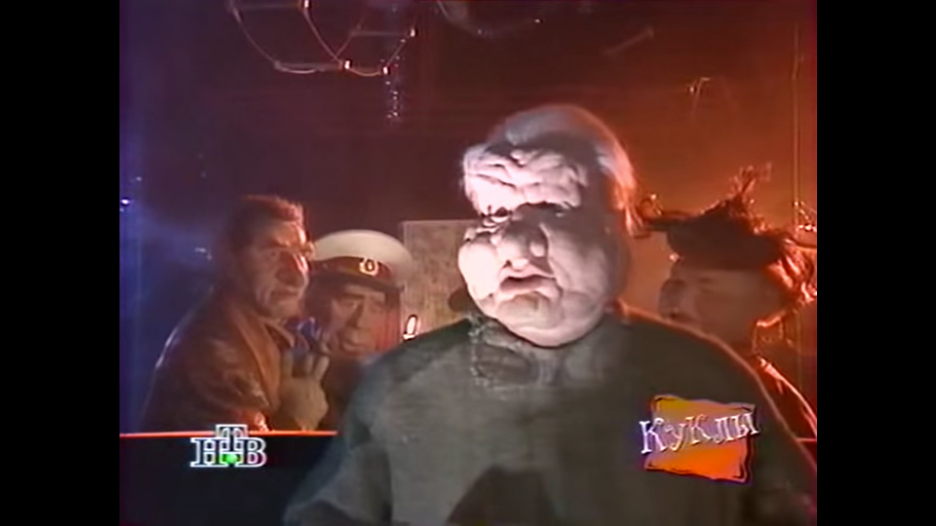Filed Under: Video > Entertainment > Boris Yeltsin’s first appearance on “Kukly [Puppets]” in 1995
Boris Yeltsin’s first appearance on “Kukly [Puppets]” in 1995

Producer Vasily Grigoriev’s Kukly (Dolls or Puppets) was among the most significant and visible works of political satire in the 1990s. Running from 1994 and until 2002, Kukly was a puppet show that lampooned all significant political figures in Russia in topical and uniformly critical ways. Vasily Grigoriev bought the concept rights in 1994 from an existing French show: Alain De Greef and Alain Duverne’s Les Guignols de l'Info (1990-2015). Alain Duverne created the first dolls for Grigoriev’s version, while puppet-maker Andrei Drozdov took over the endeavor for further broadcasts (and new politicians). Satirist Dmitri Shenderovich was the show’s primary writer, but multiple authors were involved in its creation. The first broadcast was already political, mocking numerous ongoing government scandals and initiatives—including the war in Chechnya, represented within the episode through a ridiculous game of charades played by politicians under a table, to avoid directly acknowledging the quagmire. The show proceeded in this vein, with numerous controversial episodes challenging the narratives of state power.
Initially cautious about insulting the person of the President of the Russian Federation, Kukly added a puppet Yeltsin as early as the second episode (“The Old New Year,” 7 January 1995). In July 1995, a criminal case was opened against the show for demeaning the dignity of the politicians it mocked. The case went nowhere, its cult status cemented by Prime Minister Victor Chernomyrdin’s signaling tacit support by meeting his puppet on the air.
Vladimir Putin’s emergence as a political force and the beginning of his reign heralded the end of Kukly. The show came into conflict with Putin almost immediately, by airing an episode titled “Kroshka Tsakhes [Little Tsaches]” on 21 January 2000. The show portrayed the politician-in-training as a hideous monster-child uplifted to the level of a human leader by other scheming puppets, a reference to German Romantic writer E.T.A. Hoffmann’s (1776-1822) dark fairy tale Klein Zaches, genannt Zinnober (Little Zaches Called Zinnober, 1819). In Hoffmann’s original, a fairy enchants a monstrous man to appear delightful to all his compatriots, who ascribe all ambient good deeds to him, while attributing his evil acts to someone else. In the Kukly version of the tale, the Putin character is defeated when someone plucks out the three magical hairs that give him power, while allows him to be drowned in a chamber pot at the episode’s conclusion. Despite these insulting jibes, Kukly limited its representation to merely humiliating the disenchanted Putin, revealing that the whole sequence was, in fact, “just a dream.” Nevertheless, according to politician and journalist Viktor Shenderovich, Putin took offense, and as early as April 2000, there were increasing calls for legal action against Kukly, leading to a slow decline and eventual cancelation in 2002.